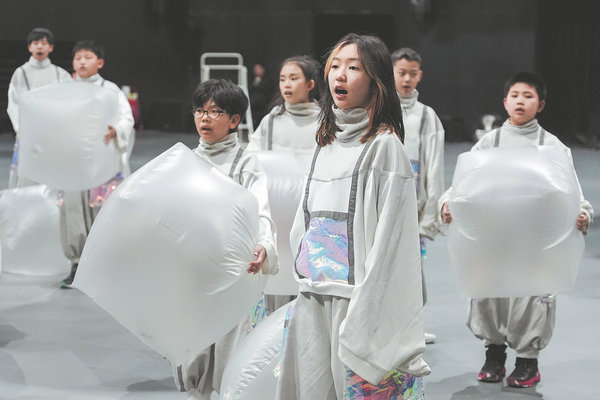

"By learning from local traditions and storytelling techniques, theater practitioners can infuse their work with authority and relevance, creating performances that resonate with the audience on a profound level. In essence, this cultural exchange fosters a rich exchange of knowledge and creativity, benefiting both the practitioners and the recipient community."
Hao Rong, president of the Central Academy of Drama, agrees.
He further underscores the crucial role of theatrical arts in fostering the personal development and critical thinking abilities of young people. He advocates for drama as a pivotal aspect of aesthetic education for the whole of society.
"Through engaging in role play in theaters, adolescents could actively explore societal dynamics, diverse characters and narratives, thereby cultivating their own ethical, moral and philosophical outlooks," he says.
He also notes that modern theater education in China began later than in the West, leading to a gap. To bridge this divide, he emphasizes the importance of professionalizing drama education and integrating it into teacher-training programs.